Solar Cable Assembly Manufacturer
We manufacture high-quality solar cable assemblies for efficiency, durability, and industry compliance. Trusted by 1,000+ customers worldwide, we offer pre-configured and custom solutions for residential, commercial, and industrial needs—ensuring reliable, long-term performance.
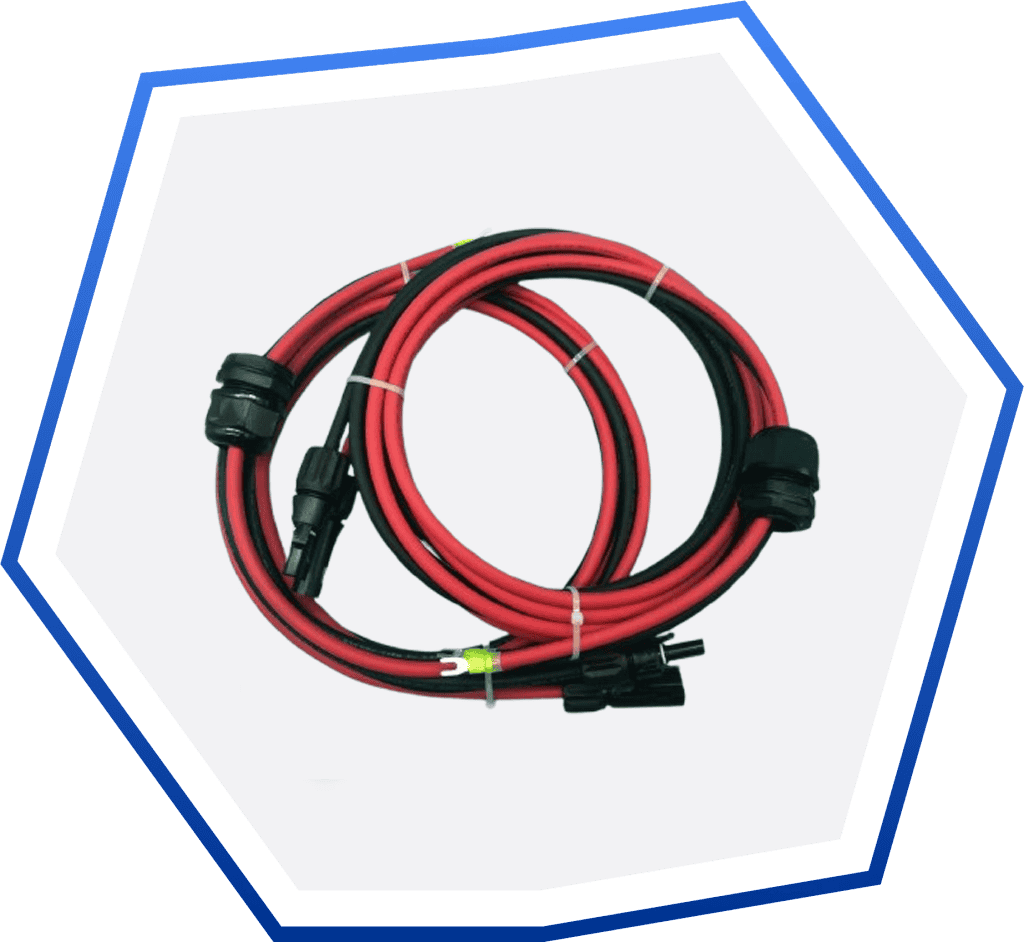
Our Clients






The growth of renewable energy has increased the need for reliable, high-performance power cable assemblies.
Wiringo delivers pre-configured and custom wiring solutions for efficient solar power transmission, durability, and seamless integration into residential, commercial, and utility-scale systems.
Solar Cable Assembly and Wire Harnesses
Our solar cable assemblies are fire-resistant, UV-resistant, and waterproof, ensuring durable, reliable connections for photovoltaic systems.
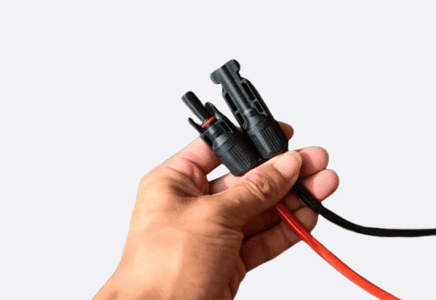
Extension Cable Assemblies
Our extension cable connects solar panels to charge controllers or links multiple panels, allowing for more flexible spacing.
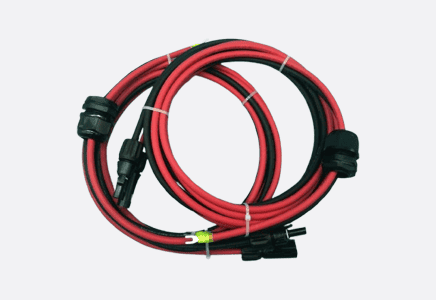
Adapter Cable Assemblies
The Anderson Adapter to Solar Connectors cable connects any RICH SOLAR MEGA Series panel to a solar connector for seamless compatibility.
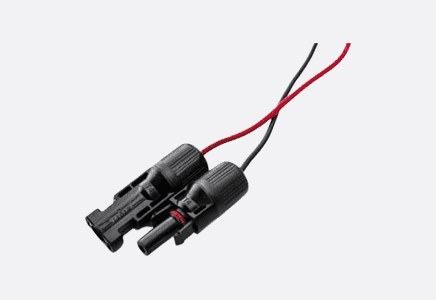
Battery Connection Cable Assemblies
TUV tested cable; Waterproof and UV resistant; Hard plastic connectors at each end.
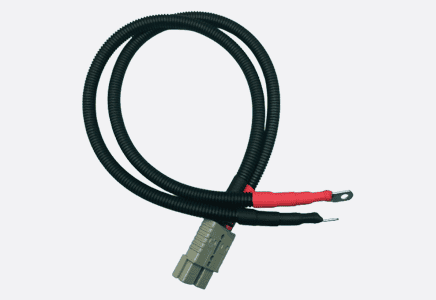
Battery to Inverter Cable Assemblies
TUV tested cables; Solar plastic connector at one end; Ring terminal on the other end.
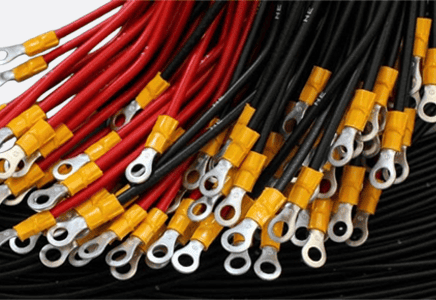
Tray Cable Assemblies
TUV-tested battery cable with battery rings on one end and exposed wire on the other for direct charge controller integration.
Why Choose Wiringo?
When you choose Wiringo’s solar cable assemblies, you’re selecting a solution that guarantees reliable performance, durability, and customized fit.

Custom Engineering
We offer a comprehensive manufacturing process with various techniques to help you brand or identify each solar cable and connector.

High Quality Materials & Industry Certifications
Our products use UV-resistant, weatherproof, and high-temperature-rated materials, meeting UL, TUV, and IEC certifications for durability and safety.

Expert Support & Technical Guidance
Our team of experienced engineers and solar wiring specialists provides expert consultation, helping you select the best configurations and components for your specific energy needs.

Streamlined Manufacturing & Fast Turnaround
With advanced facilities and streamlined processes, we efficiently manage high-volume and custom orders, reducing lead times to keep your projects on track.
Our Manufacturing Capabilities
We leverage advanced manufacturing technology to produce high-quality products.
Services
We design and manufacture tailor-made solar wiring solutions to meet unique requirements.
- Custom Solar Cable Assembly Design
- Prototyping & Engineering Support (Wire Cutting & Stripping, Connector & Terminal Crimping, Overmolding & Encapsulation, High-Performance Shielding & Braiding)
- Cable Pre-termination & Assembly
- Electrical Testing & Quality Assurance
Design Process
It begins with a detailed consultation to understand your solar project's unique requirements. Our engineers then design custom solutions tailored to your specific technical needs. Once the design is finalized, we develop prototypes for testing and validation.
Benefits
Wiringo’s custom solar cable assemblies offer a range of benefits that enhance performance, including:
- Fast and Effortless Installation
- Removable In-line Fuse Holders
- ETL Certified, Supporting High Voltages up to 1500V
- Fewer Cable and String Connections for Efficiency
- TPV Material Overmolding for Enhanced Waterproofing
- Flexible Cable Lengths and Connector Customization
Customizations
Wiringo offers custom solar cable assemblies and wire harnesses tailored to your project needs. Our customizations include:
- A variety of cable sizes and specifications
- In-line or independent fuses and MC3 or MC4 connectors
- Adjustable cable lengths
- Voltage and current ratings
- Specialized overmolding for waterproofing
- Custom labeling for ease of installation and enhanced system safety
Safety Testing
At Wiringo, we prioritize safety by undergoing comprehensive testing. This includes electrical overload tests and environmental and mechanical stress tests. We also perform fire resistance and durability tests to guarantee long-lasting, reliable performance in demanding conditions.
Flexible Order Quantities
Whether you need small prototype runs or bulk orders, we can adjust our production to suit your specific requirements, providing cost-effective solutions without compromising quality.
What Our Customers Are Saying
Our customers trust Wiringo for our reliable, high-quality solar cable assemblies and wire harnesses.

I have received an shipment of the cables that was supplied (p/o : 5130903714 )
I would like to say thanks you , to you and your staff ( factory ) well done.
I am very happy with the quality of the work, ( C )

Thank you very much for your hot support and efforts for our parts supply.
We received your DC cables with thanks a lot.
All parts passed inspection successfully!
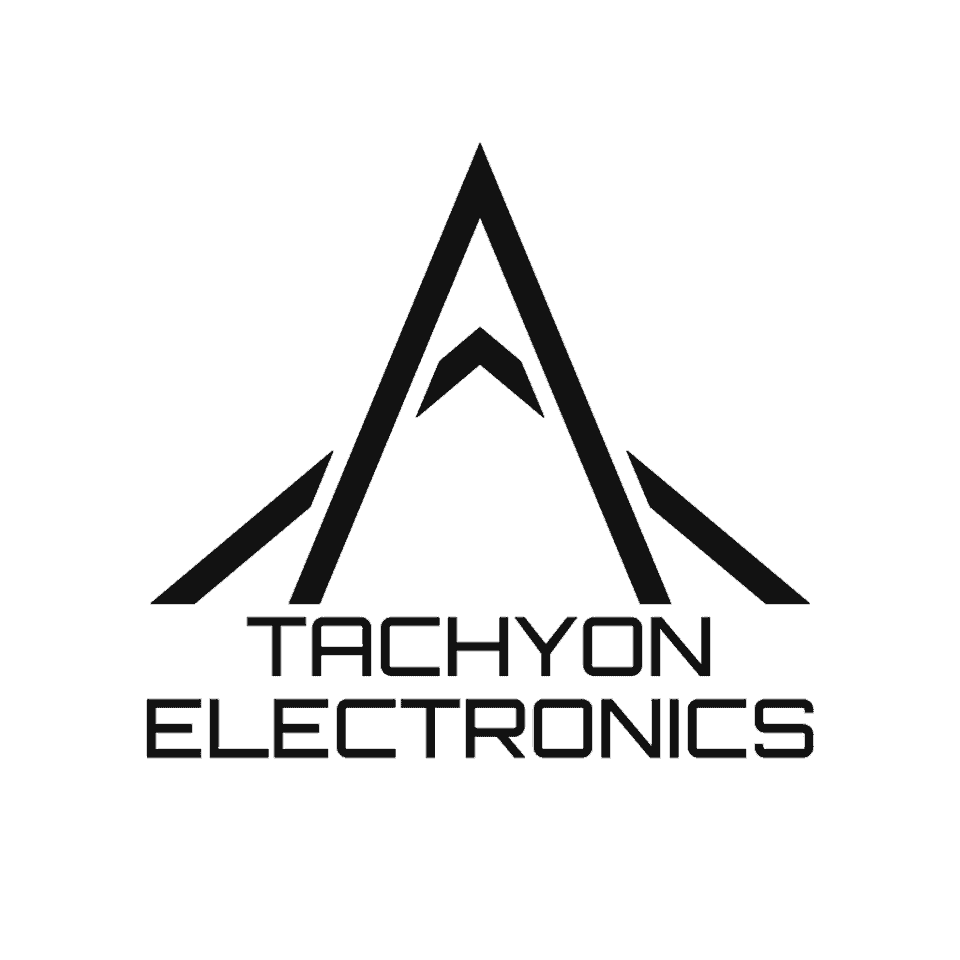
Lead Engineer
I just received the cables. Once again, we are very pleased with the results. We are also looking forward to further cooperation in the future.
Please take care.

I could not ask for anything better in terms of quality since everything arrived in perfect condition.
Thank you very much and I look forward to future projects with Wiringo.
Thanks again for Wiringo's hard work in making this project a success.
FAQs
What is the typical lead time for solar wire harnesses and cable assemblies?
Our lead time for custom solar wire harnesses and cable assemblies generally ranges from 2 to 4 weeks, depending on the complexity and quantity of the order. We strive to meet your project deadlines and will provide an accurate delivery estimate after order confirmation.
What are the main types of solar harnesses?
The most common cable types are THHN, PV, and USW-2. Due to their thicker insulation, each type is ideal for specific applications.
What materials are used in your solar wire harnesses to ensure reliability and durability?
We use high-quality materials, such as UV-resistant insulation, tinned stranded conductors, and weatherproof connectors, to ensure that our solar wire harnesses and cable assemblies perform reliably in all environmental conditions.
Choose Wiringo’s Solar Cable Assembly
Our high-quality products are designed to meet your project’s specific needs, ensuring efficiency and longevity in any environment.






